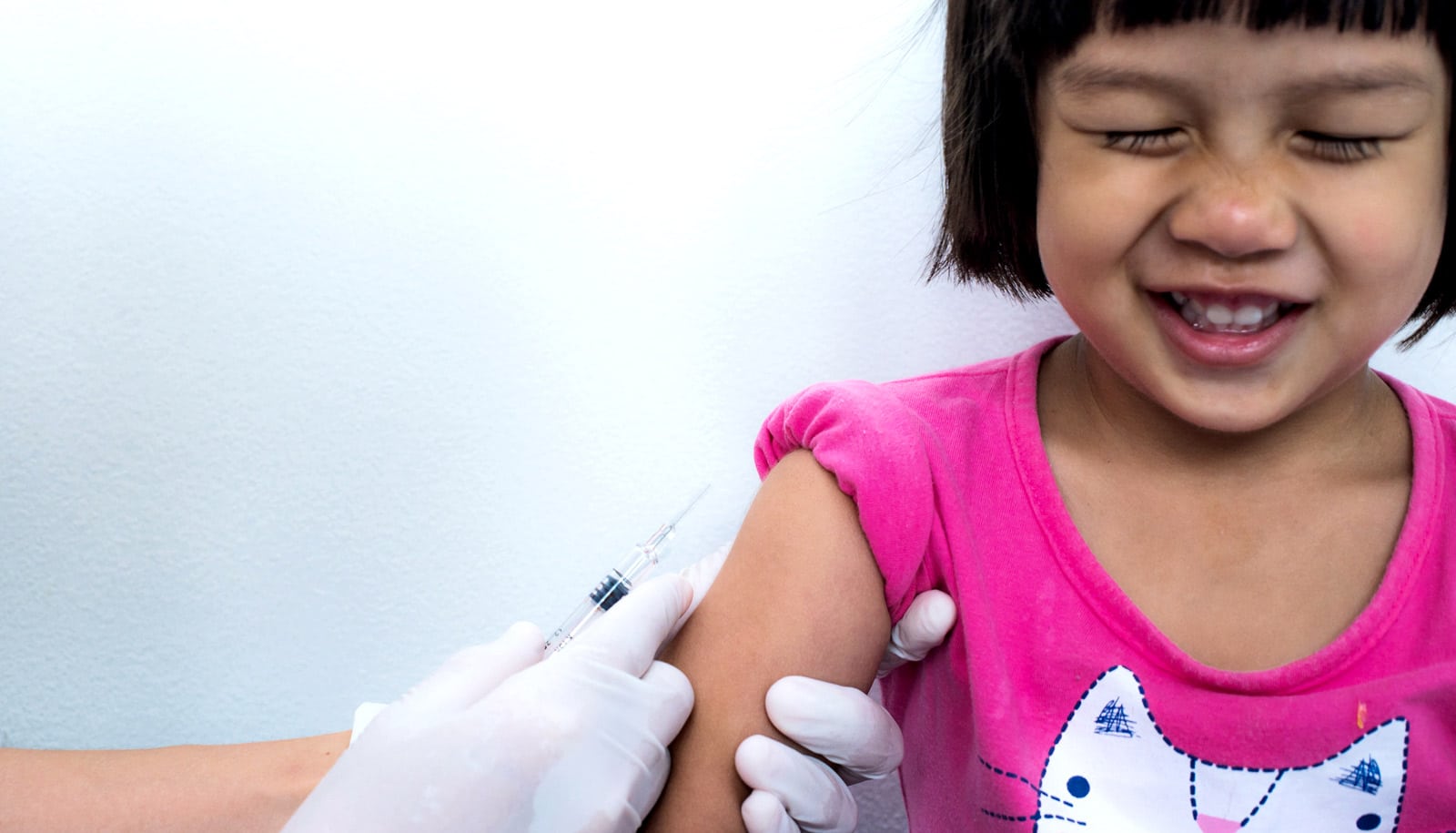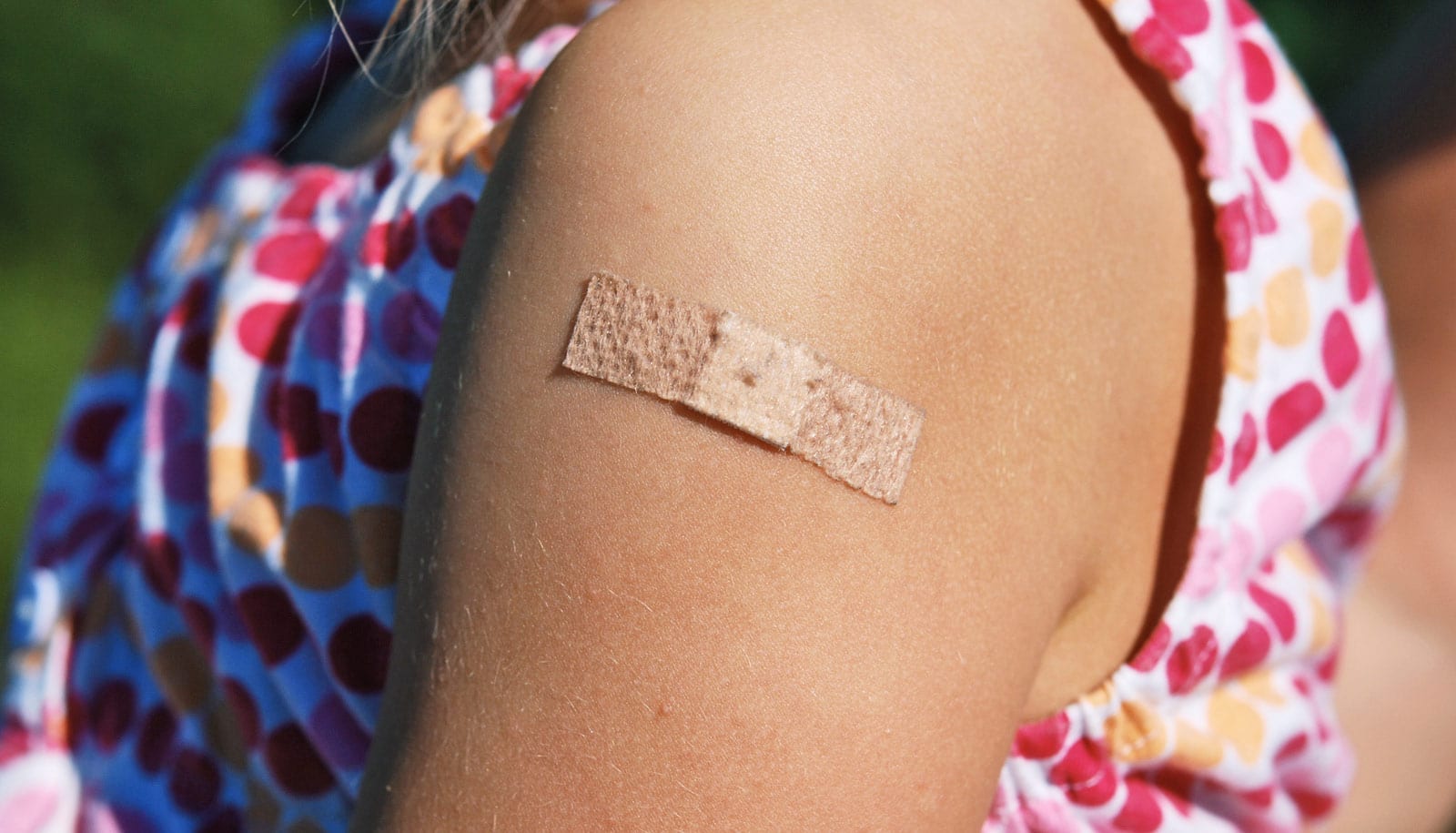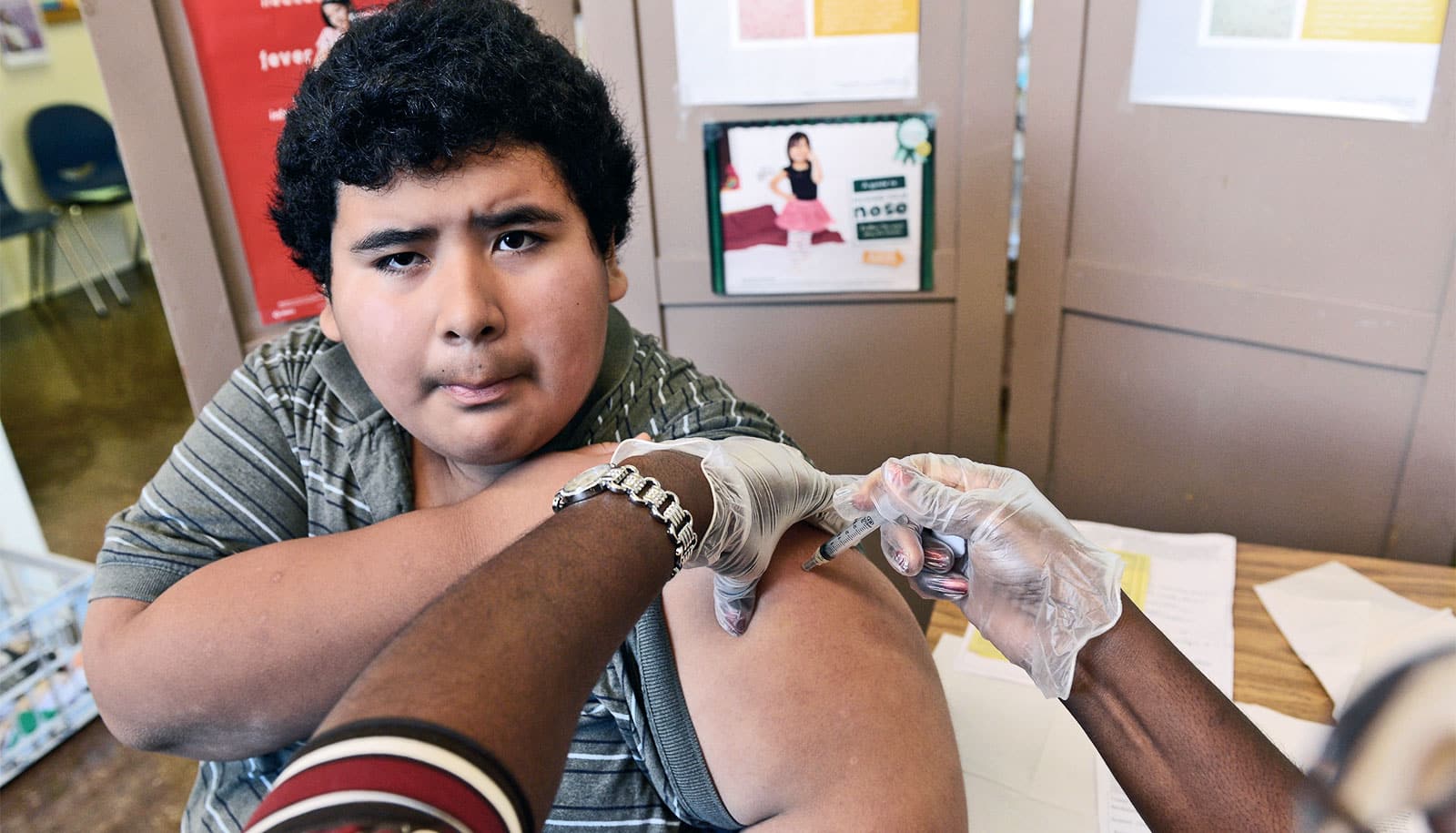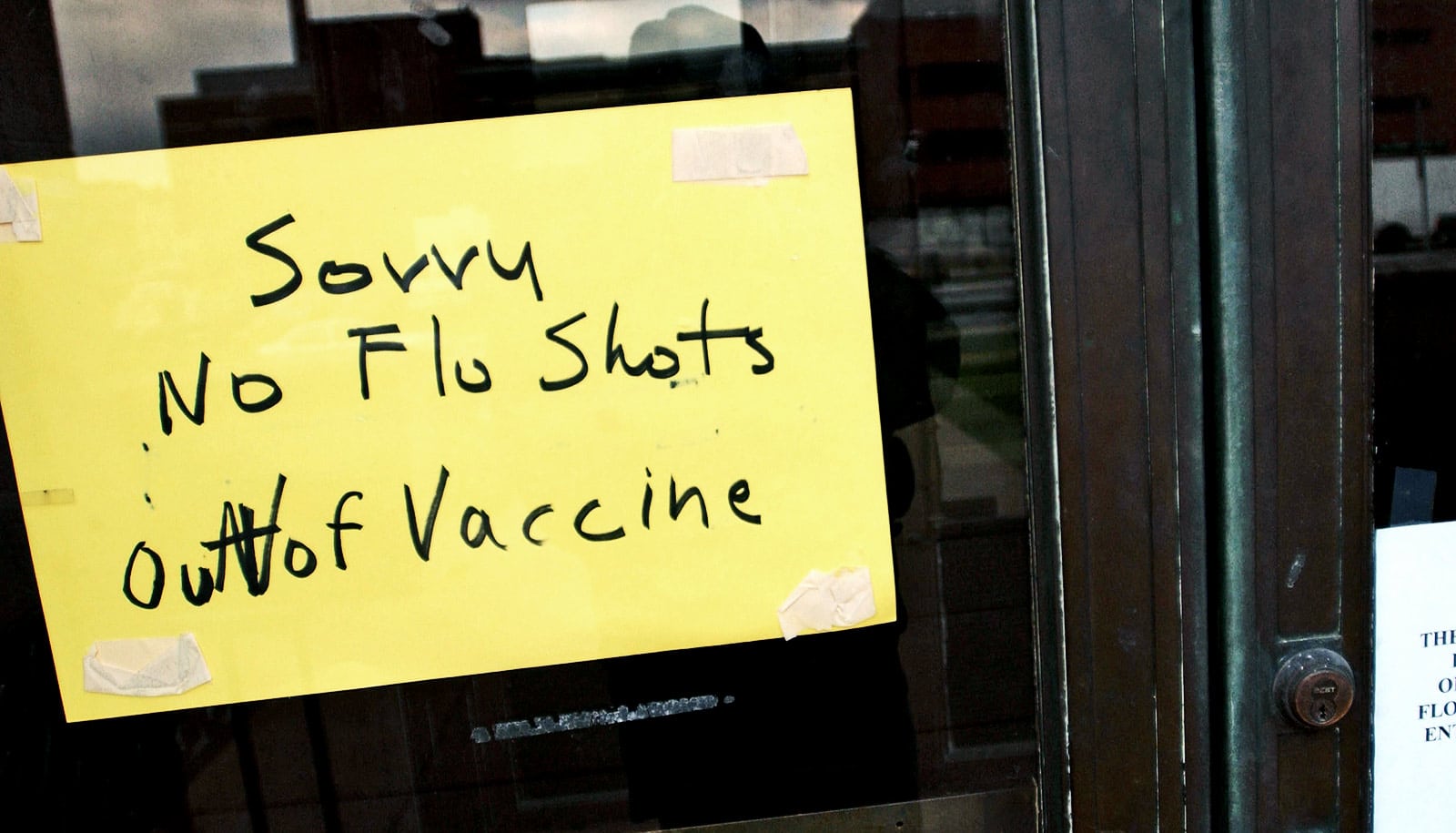Should parents vaccinate their child for measles? This expert says there is only one answer.
Measles can pack a serious punch, landing as many as one in four infected people in the hospital and killing one in 1,000. The peak season in temperate climates starts about now, in late winter and early spring.
Widespread immunization all but eliminated measles from the United States by the year 2000. But the disease has seen a resurgence in recent years, thanks in part to lower immunization rates driven by parents who claim religious or philosophical exemptions to mandatory childhood vaccinations.
One child with measles walking through a school will pretty much infect every other susceptible person in that school.
These requests for exemptions are often based on unfounded safety concerns, including the fear that the measles, mumps, and rubella (MMR) vaccine causes autism—a link made in a 1998 article in the scientific journal The Lancet. The journal retracted the article and numerous studies have debunked the findings.
Measles outbreaks in the United States, triggered when unvaccinated people travel here from other countries, are ongoing in New York, Washington, and Texas. California has reported at least one case since the beginning of the year.
Here, Art Reingold, professor and division head of epidemiology at the University of California, Berkeley, School of Public Health, talks about measles, vaccine safety, and the importance of immunizing kids.
What are the risks of the MMR vaccine? How do they compare with the risks of getting sick?
In the United States and in Europe, some parents have come to the conclusion that the alleged risks of vaccination outweigh the possible benefits and that, therefore, not vaccinating their child is the right thing to do. And that really relates to a couple of problematic things that people think they know, which are not correct.
One is that measles is a benign disease. That’s a complete misconception. Even in wealthy countries, like the United States and Europe, we know that about one in 1,000 children with measles will die—despite good medical care and despite good nutrition. And so, when you have, as European countries are having at the moment, 50,000 cases of measles a year, that means that you will have 30, 50, 60 deaths that could all be prevented. Furthermore, some of the children who don’t die are left severely affected, with lingering problems.
And secondly, the perception that the MMR vaccine is somehow risky or dangerous, is also wrong. Vaccines are not 100 percent risk-free, but they are very, very, very safe, and they do not cause autism.
How effective is the MMR vaccine at preventing measles?
It depends on the age at which you received the vaccine, but it mostly depends on getting two doses rather than one. One dose of measles vaccine is only about 93 percent effective, but two doses is over 99 percent effective, which is why we have a two-dose strategy. The vaccine-induced immunity should be present seven to 10 days after immunization.
Why is it so important that everybody be vaccinated? Why can’t we let some people take the risk of going unvaccinated if that is what they choose?
For diseases that are spread from one person to another—measles is a quintessential example, but others include whooping cough and rubella—we have something called herd immunity.
Basically, if I’m not vaccinated, and I’m susceptible, but I live within a herd where everyone else is immune, I will have indirect protection and don’t have a chance of getting infected.
But herd immunity for measles requires a very high level of immunization because it is so contagious. One child with measles walking through a school will pretty much infect every other susceptible person in that school. That is how infectious it is. And we have some individuals in the community who cannot be protected by vaccination. That includes children with leukemia or other immunosuppressive conditions, and that includes children too young to vaccinate.
We promote the idea of herd immunity because it is one way to protect the most at-risk people in the community who we can’t protect directly with vaccinations.
In 2015, California passed a law eliminating all non-medical exemptions to childhood immunizations. How has this law affected vaccination rates in the state?
The decision to make California the third state that allows no religious or philosophical exemptions to childhood immunization for children to go to school has basically meant that immunization coverage has increased. Now, if you don’t want to vaccinate your child in California, you have two options.
One is to move to a different state, and the other is to home-school your children. Older children were grandfathered in, so it only became effective for children entering kindergarten three years ago or so.
However, we do know that the number of children claiming a medical exemption has tripled in California, though it is still a very low number. Medical exemptions are for things like, your child has leukemia and can’t get a live virus vaccine, or your child had a severe allergic reaction to the first dose and shouldn’t get a second dose.
There are legitimate medical exemptions, but there is really good evidence that some health care providers are now providing medical exemptions for what experts would say are not legitimate medical purposes. At least one provider in Southern California has already been sanctioned for this, and I suspect that there are others who are being investigated, because they are really handing out medical exemptions to children who don’t really meet the criteria for them.
But, overall, the proportion of kids entering kindergarten who are immune to measles has gone up as a result of the change in the law, and that is a good thing.
What are health officials doing to help curb the current outbreaks?
In the short term, they are offering measles immunization and trying to convince parents to vaccinate their children. In the long term, they are considering following California’s lead and making it harder to obtain vaccine exemptions.
What would you say to parents who are nervous about getting their kid vaccinated?
My children are vaccinated, and my grandchildren will be vaccinated, if I’m privileged to have any. I personally believe in vaccination, and I put my money where my mouth is, number one.
Number two, we have copious data from over many years, over many countries, demonstrating the safety of vaccines, and particularly the MMR vaccine. I would reassure them that we know this is a safe vaccine, and that they should make the wise choice and opt for vaccination. Measles vaccine is a very safe vaccine, and measles is not a benign disease.
Source: UC Berkeley



